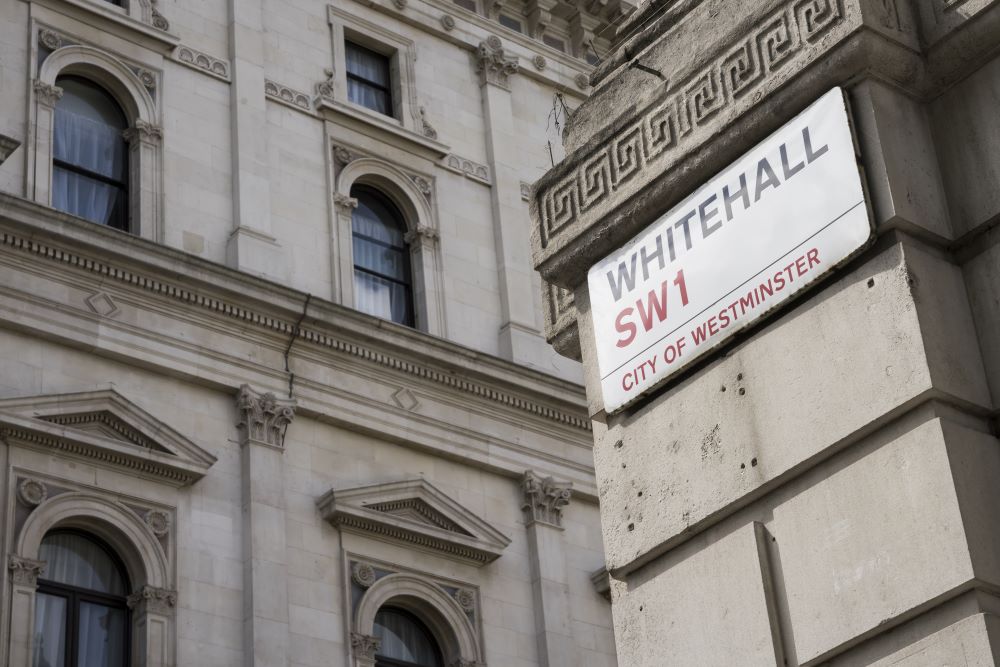
Yesterday (17 May) marked 100 days since the government reorganised key departments and created the new Department for Business and Trade (DBT), combining the former Department for International Trade (DIT) with parts of the old Department for Business, Energy and Industrial Strategy (BEIS).
Ministerial responsibilities within DBT have now also been formally announced.
Roles and responsibilities
Nigel Huddleston has the role of minister for international trade and will lead free trade agreement negotiations and market access strategy as well as all bilateral trade relations. He is also responsible for the Export Control Joint Unit (ECJU) and the UK-EU Trade and Cooperation Agreement (TCA) implementation and review.
Nusrat Ghani is named as minister for industry and economic security, while also keeping her role as minister for investment security in the Cabinet Office (a role that previously fell under BEIS). She was previously a minister at BEIS and before that
was a parliamentary undersecretary at the Department for Transport.
Elsewhere, Lord Dominic Johnson of Lainston was appointed minister for investment, a role he previously held at DIT; Kevin Hollinrake was appointed minister for enterprise, markets and small business, having also held a similar role at BEIS.
Lord Offord, also the lords minister for the Scotland Office, was named as minister for exports, while former Paperchase CEO, Timothy Minto (the Earl of Minto), was named as minister for regulatory reform, having been elected to the House of Lords in
October 2022.
A regional powerhouse
The Northern Echo celebrated the new department’s role in boosting jobs in Darlington, as DBT staff will be based at the new Darlington Economic Campus as part of the government’s Places for Growth Programme, part of its commitment to levelling up. Over 750 DBT staff will be located here and around the country including offices in Cardiff, Belfast and Edinburgh.
Celebrating the department’s first 100 days, secretary of state for business and trade, Kemi Badenoch, said:
“I’m proud of the great work the department has achieved in such a short time. I want DBT to be an office for economic growth, working with businesses to ensure they are seizing the opportunities we are generating at home and abroad.
“We will continue to help grow the economy and enable firms to create better-paid jobs across the country by removing barriers to businesses, growing UK exports to reach £1trn a year by 2030 and promoting the UK as the number one investment destination
in Europe.”
DCTS dates announced
Also announced by DBT yesterday was the news that the Developing Countries Trading Scheme (DCTS) will go live on 19 June 2023, replacing the current Generalised Scheme of Preferences (GSP). The aim of the DCTS is to improve access to the UK market for developing countries.
The DCTS aims to support sustainable growth in developing countries through a more generous unilateral offer, which includes provisions to reduce tariffs, liberalise rules of origin requirements and simplify the conditions attached to the scheme.
The new scheme will apply to countries that currently benefit under the UK’s GSP. This includes 47 countries in the GSP Least Developed Country (LDC) framework and 18 additional countries or territories classified by the World Bank as low income (LIC)
and lower middle-income (LMIC).
In a useful LinkedIn post on the topic, Anna Doherty, senior trade and customs specialist at the Institute of Export & International Trade (IOE&IT) explained:
“Traders currently importing goods from GSP countries with preference should familiarise themselves with the Product Specific Rules (PSR) schedule for the least developed countries to check for any changes. The government has simplified and liberalised
PSR for LDC and extended the cumulation.”



